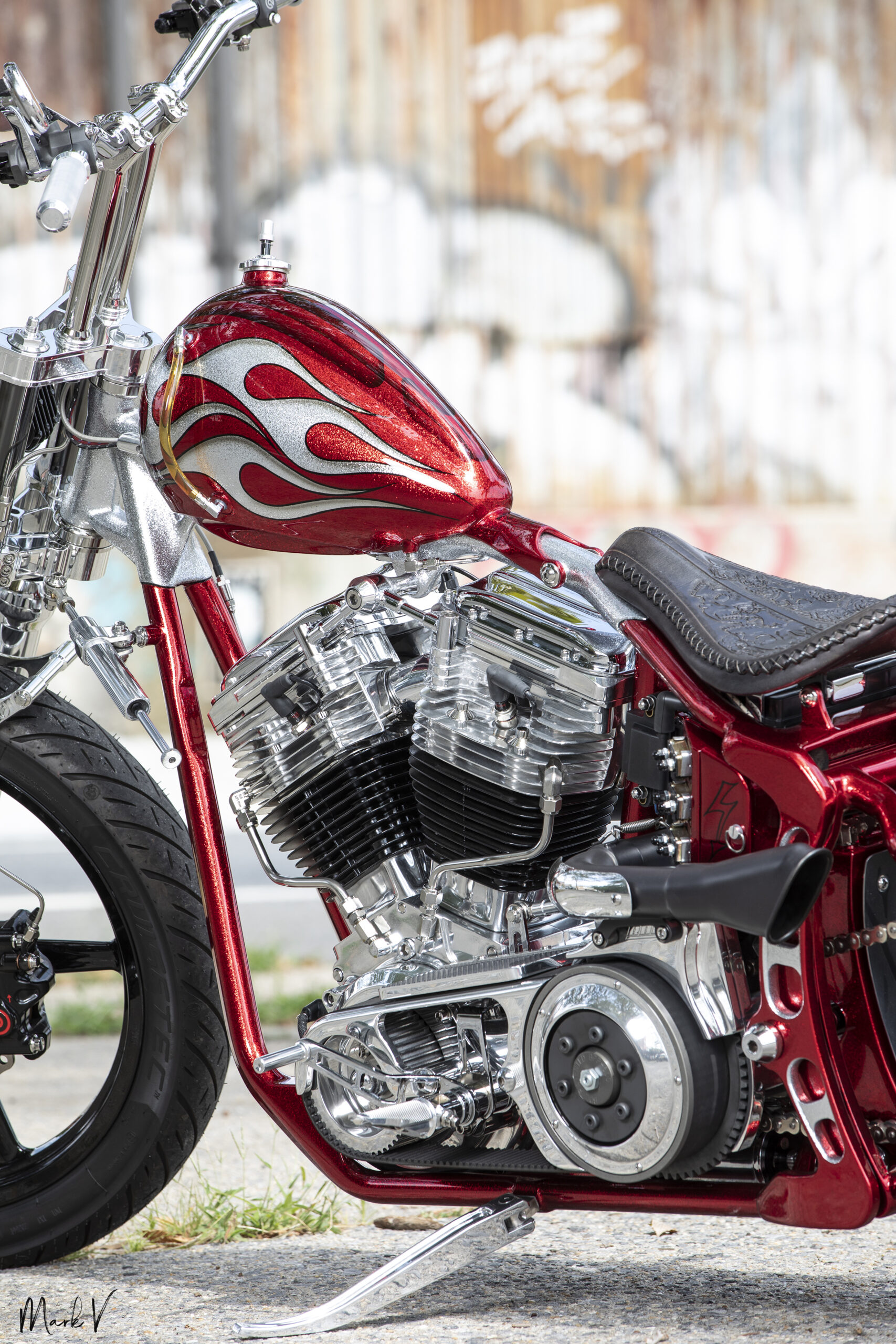
Iacona’s Red Rider
iacona’s red rider Presenting an exclusive glimpse into the realm of custom craftsman Steve Iacona of Iacona Customs. With a
2021 Michael McCabe
Photo credits: Michael McCabe, Zhang Yang, Gezi, HCB Motorcycle Club
The traditional hutong, back alley streets of Beijing, China are changing fast: What used to be a slow and quiet life now reflects the changing world. Today, young hipster kids flip off their ancestors, flaunt their tattoos and blast their fast bikes down Chang’an Jie, past the 500 year old Forbidden City.
Dong Dong has been tattooing in Beijing since the late 1990s. His Mummy Tattoo studio is located in the Sanlitun District of central Beijing where many international embassies are located and his clients are from Beijing and around the world. He has one of the best reputations in the city and is respected for his exceptional tattoo work that focuses on images of Chinese and Asian cultural themes.
A few years ago, Dong Dong established a painting studio 90 minutes away from central Beijing in the Song Zhuang Art District. Old abandoned industrial factory buildings from the 1950s and 60s have been converted by energetic young artists into living and studio spaces. Dong Dong and his friends gravitated to the area in search of an alternative way of doing things. The area now attracts young people who are heavily tattooed, explore a creative lifestyle, and ride and wrench on motorcycles. Dong Dong owns several bikes but his favorite is a Zero Engineering chopper with a Shovelhead motor. The youth based scene at Song Zhuang− the tattoo art, and the motorcycles are tangible forms of freedom and a provocative way to push back against a controlling government.
“The younger generation has been raised up with better education and have more chance to connect with the outside world,” Dong Dong said. “So they appreciate art and are more open to different and new stuff. If they saw a beautiful tattoo, or a beautiful motorcycle they may think, ‘I want one too’, which their parents may think is crazy and unacceptable.”
The combination of tattoos and motorcycles has been around since at least the late 1940s in the west. For decades, tattooed tough guys and women on their bikes have been seen in films and print and used to describe an alt way of life that explored personal freedom. Tattoos and motorcycles are only now gaining traction for young urban people in China.
Since 1949 under Mao Zedong’s communist system the government exercised more control over everyone’s life. Access to unfiltered information was difficult or impossible. Today for young Chinese people living in modernizing cities like Hong Kong, Shanghai and Beijing the question of free access to information and free self-determination is becoming critical. Young people in China, don’t want to be told what to do.
“I am seeing changes,” Dong Dong continued, “More and more young people want their tattoos to be artistic and meaningful. These young people ride on a motorcycle like they are making a new kind of statement.
“My painting studio at Song Zhuang is very important.” Dong Dong said. “There are many artists here and we all enjoy our motorcycles. We all see our art and our motorcycles as a way to be free. This is an old factory building from the 1960s. We changed it and made it an art place. We have rebuilt the history here. We get together and ride our motorcycles and talk about our art. We have seen images from America about art and motorcycle life. This is a good way to live. We learn about V-Twin Harley Davidson, Triumph and BSA… The parallel twin engine. In Beijing and at Song Zhuang there are still some old Chang Jiang sidecar bikes with boxer opposing twin motors. They are left over from the old Communist days. You can hear the old engines coming- chug, chug, chug. This is a sound from the past. We are moving forward now.”
Dong Dong and his friends at the Song Zhuang Art District have created new options for themselves. They combined images and ideas from their own history together with inspiring impressions from the West in an effort to reshape their lives.
Photo credits: Michael McCabe, photos of Dong Dong in the traditional Gulou neighborhood by Zhang Yang. Several photos at Song Zhuang Art District by Gezi. He was photographing the HCB Motorcycle Club.
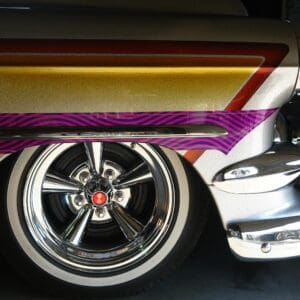

iacona’s red rider Presenting an exclusive glimpse into the realm of custom craftsman Steve Iacona of Iacona Customs. With a
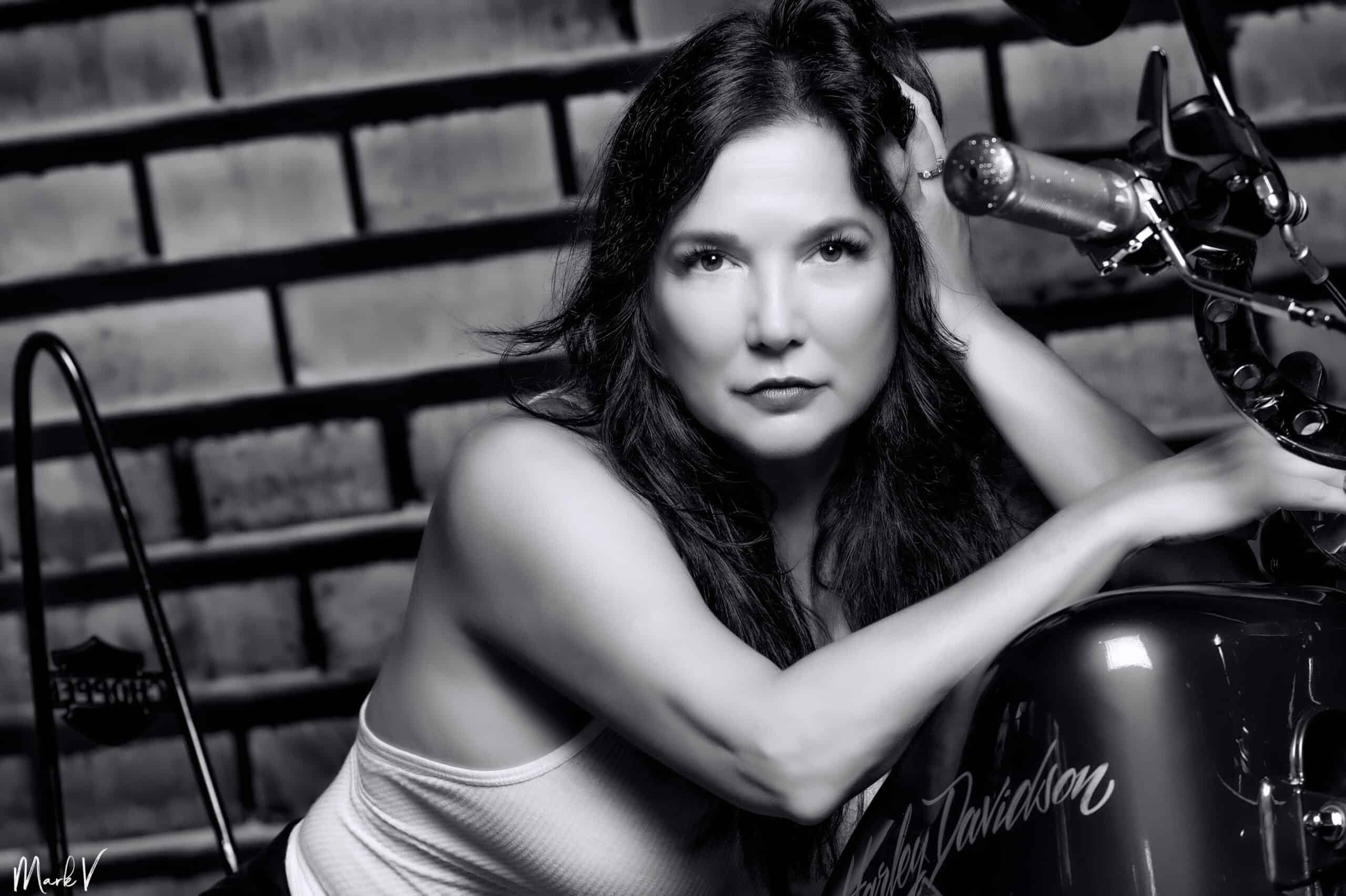
WHO’S THAT GIRL! KIM MARIE My motto in life Never Give Up! If I had to describe myself in three
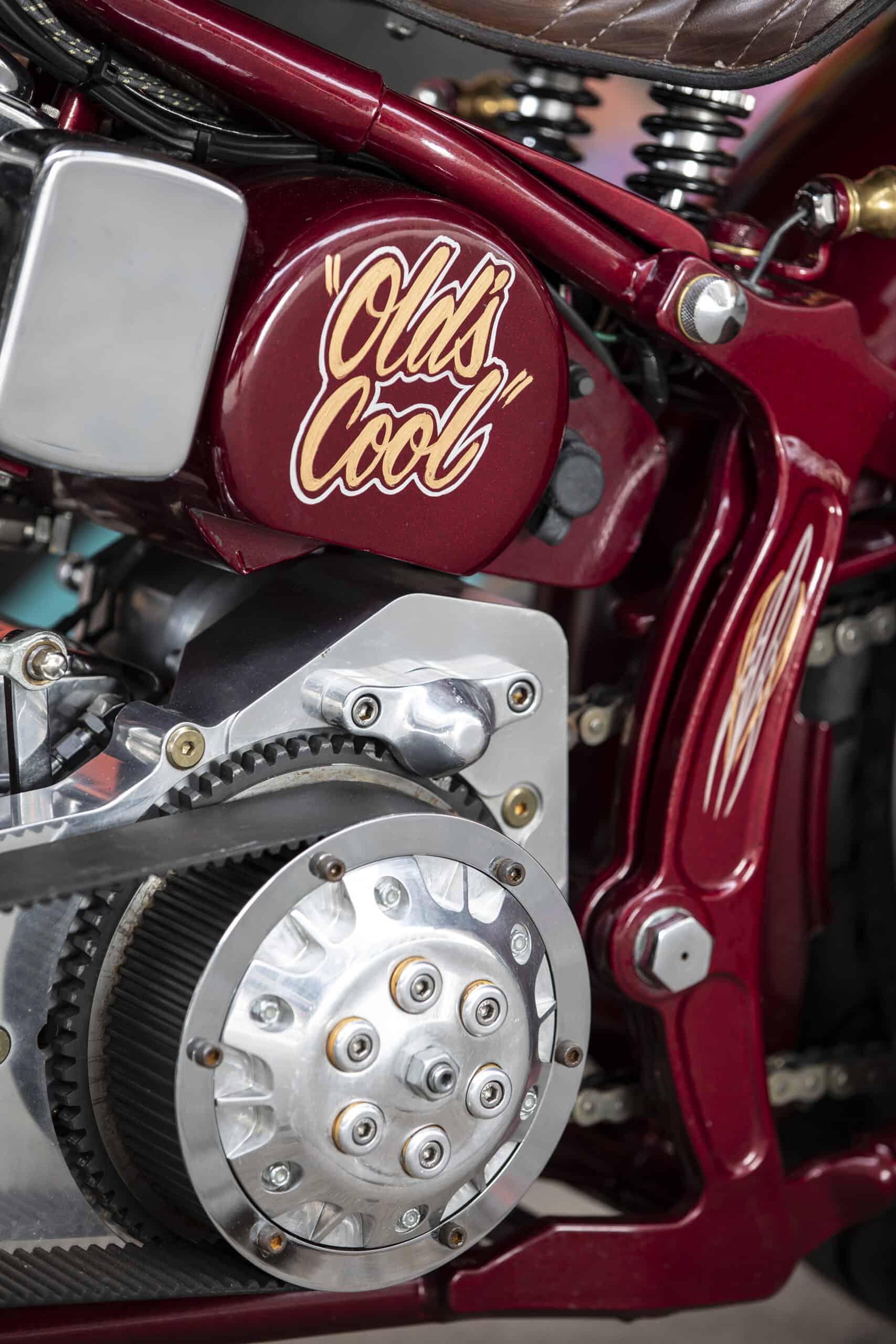
keeping it real at old’s cool choppers Story: Anthony of Old’s Cool Chopper Images: Mark V Enjoy a very special
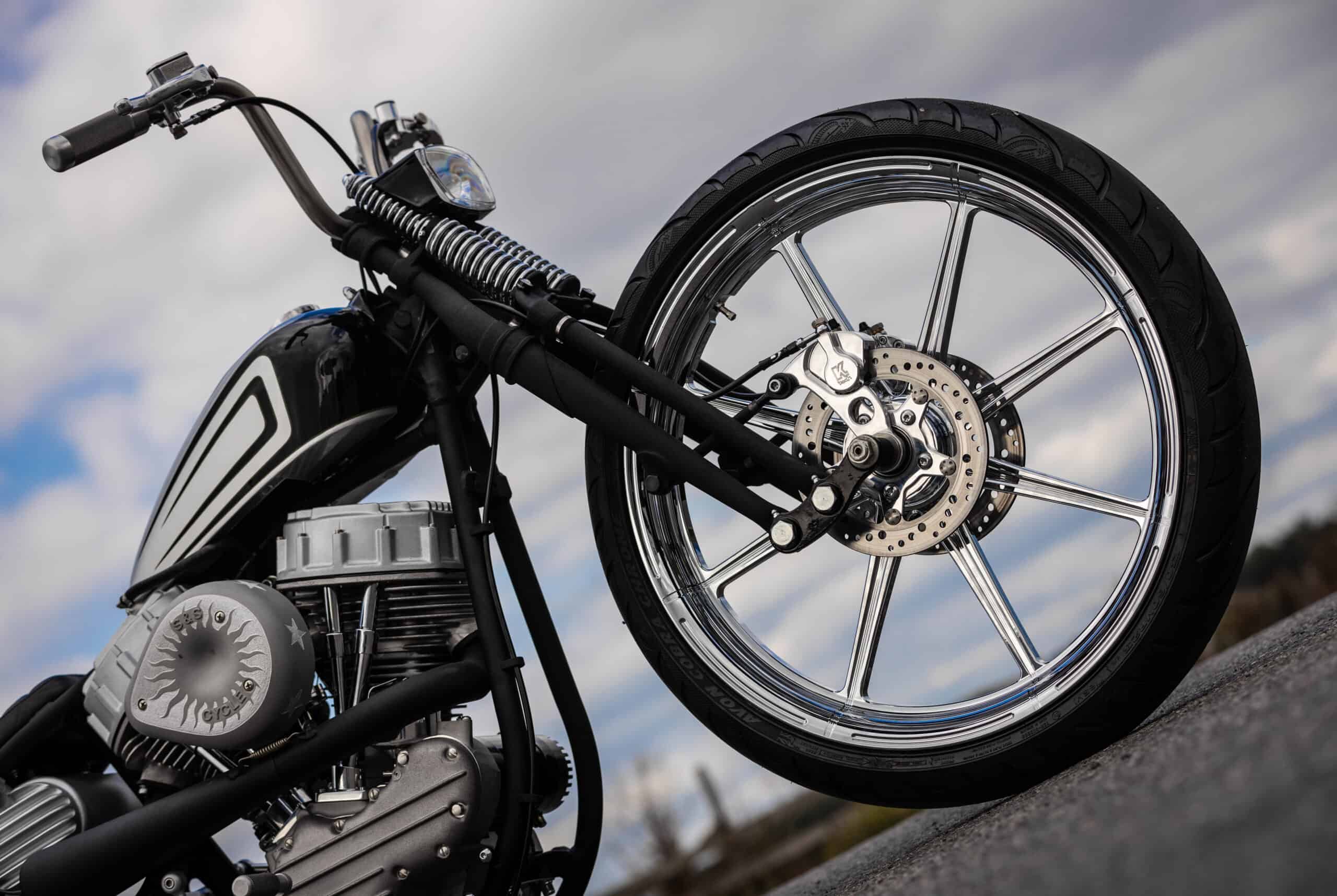
Story: Martin Becker Images Courtesy of MB Cycles Our goal here on this site is to truly never do anything
| Cookie | Duration | Description |
|---|---|---|
| cookielawinfo-checkbox-analytics | 11 months | This cookie is set by GDPR Cookie Consent plugin. The cookie is used to store the user consent for the cookies in the category "Analytics". |
| cookielawinfo-checkbox-functional | 11 months | The cookie is set by GDPR cookie consent to record the user consent for the cookies in the category "Functional". |
| cookielawinfo-checkbox-necessary | 11 months | This cookie is set by GDPR Cookie Consent plugin. The cookies is used to store the user consent for the cookies in the category "Necessary". |
| cookielawinfo-checkbox-others | 11 months | This cookie is set by GDPR Cookie Consent plugin. The cookie is used to store the user consent for the cookies in the category "Other. |
| cookielawinfo-checkbox-performance | 11 months | This cookie is set by GDPR Cookie Consent plugin. The cookie is used to store the user consent for the cookies in the category "Performance". |
| viewed_cookie_policy | 11 months | The cookie is set by the GDPR Cookie Consent plugin and is used to store whether or not user has consented to the use of cookies. It does not store any personal data. |